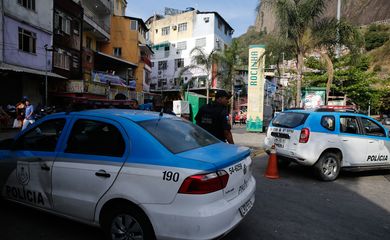Violence in favelas “disturbing,” says OAS representative




“It's been clear that people have been suffering because they are poor".
Acting chairwoman of the Inter-American Human Rights Commission of the Organization of American States (OAS) Margarette May Macaulay, described the human rights violations perpetrated by the state in Rio de Janeiro slums as “disturbing.”
She spoke at a hearing on security and human rights in the favelas of Rio de Janeiro, held Monday (Oct. 23) in Montevideo, after presentations on the topic by both non-government and state institutions.
The state, she believes, has failed to come up with an answer to the violations reported. “It's been clear that people have been suffering because they are poor. I've been hearing about the favelas for a long time, but what measures have been adopted by the state to tackle poverty? How many officers have been sentenced for the murders of civilians and the injured? What does the government do when children die while playing outside their homes and in school?” she asked.
Daniela Vick, a representative from NGO Justiça Global, recounted real-life stories like that of Maria Eduarda, who died in school in April. “Rights violations in favelas take up a collective and generalized dimension as they affect those who are not the direct targets of security forces,” Vick pointed out.
Adviser James Cavallaro, who has lived in Brazil, referred to the data made public as “shocking” and a major setback in security. He also questioned the “logic of war” implemented by the state in the favelas, in which the term “territory” in place of “neighborhood” is used to refer to the impoverished districts.
“Over a thousand people killed by security forces in a year! I've worked in the field, I know how often summary executions take place, without a trial, without defense. It's shocking; these are world's highest figures, comparable to conflict and war situations,” Cavallaro declared.

The “logic of war” implemented by the state in the favelas, in which the term “territory” in place of “neighborhood” is used to refer to the impoverished districts.
The government
On behalf of the Brazilian government, Alexandre Ghisleni, Director for Human Rights and Social Topics at the Foreign Ministry, mentioned the $1.3 billion investment in the National Program for Security and Citizenship (Pronasci), with 95 efforts from 2008 to 2013, whose guidelines are still observed in the current National Security Plan. He explains that the program “proposed the formation of a culture of peace, and the support of disarmament, the systematic fight against prejudice based on gender, ethnics, race, generations, sexual orientation, and cultural diversity, as well as the integrated management model of public security institutions.”
He went on to mention local efforts in Rio de Janeiro, including the creation of the Pacifying Police Units and preventive policies, which have currently been impacted by the budget crisis.
After today's hearing, the Inter-American Human Rights Commission will consider the case and make a public statement. No date has been set for such a pronouncement as yet.
Translated by Fabrício Ferreira
Fonte: Violence in favelas “disturbing,” says OAS representative





